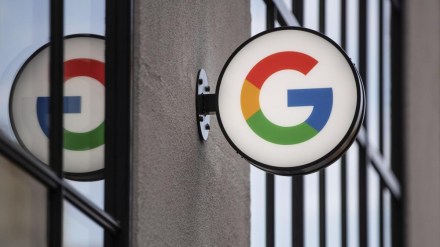By Siddharth Pai,
In a landmark ruling last week, Judge Amit P Mehta of the US Court of Appeals in the District of Columbia ruled that Google had abused a monopoly over the internet search business. I have written in the past about how Google has been cementing its dominance, partially by paying billions of dollars a year to other companies like Apple and Samsung, to have Google automatically handle search queries on their smartphones and web browsers.
You might be opening your Safari browser on your iPhone or a native browser on your Android device, thinking it’s not Google Chrome, and therefore, you are using another firm’s search service. Not so. In many, if not most instances, Google is the search engine being used; Safari or another browser is just presenting it. Most people are unaware of this multi-billion-dollar arrangement between Google and their phone manufacturers. If you doubt me, go to your settings and check which search engine is the default on your browser.
“Google is a monopolist, and it has acted as one to maintain its monopoly,” Judge Mehta said in the ruling (shorturl.at/d5dKG). This is a harsh critique — possibly the harshest anti-trust (anti-monopoly) critique laid down on Big Tech in over 20 years in the US. Judge Mehta must now decide what to instruct Google to do pursuant to the ruling. These instructions on remedies will impact Google significantly. The company will no doubt appeal, but that said, Mehta’s remedies will be an instructive example of how governments the world over should deal with Big Tech.
The last significant ruling was against Microsoft in the 1990s, when that company bundled its browser as the default in its Windows-based devices, thereby crowding out Netscape, the original pioneer in browser technology. Netscape, a minnow compared to Microsoft, was crowded out of the market by this move of its vastly larger competitor. US authorities took notice, and the justice department issued a landmark decision against Microsoft (rb.gy/nnovhl).
What happened after that has become folklore, and indeed, anti-trust experts are now comparing Judge Mehta’s ruling to that landmark decision. In that case, Microsoft avoided the spectre of a break-up — which had hit giants AT&T and IBM in the past. Whether Google can now avoid one is hotly debated by anti-trust ruling experts in the US and beyond.
In the judgment, Judge Mehta found that Google is able to provide users with a better experience because it receives many billion more queries than other search engines, such as DuckDuckGo, Microsoft’s Bing, or Ecosia.
Forcing Google to share its data hoard, which it has garnered from these sources, may be a way that Judge Mehta chooses. Sharing data will hurt Google. One of the most immediate impacts of this ruling will be on Google’s financials. The company’s advertising revenue, which constitutes the lion’s share of its income, could face a downturn. With competitors gaining access to similar data, advertisers might diversify their spending across multiple platforms, leading to a potential decline in Google’s advertising market share. Furthermore, the costs associated with complying with this ruling — such as establishing secure data-sharing protocols and ensuring privacy standards — could also impact Google’s bottom line.
Further, Google’s data includes vast amounts of personal information about its users. Ensuring this data is shared responsibly, with stringent privacy protections, will be paramount. Google must work closely with regulators, privacy advocates, and other stakeholders to develop frameworks that protect user privacy while complying with the ruling. On the positive side, this could lead to new industry standards for data-sharing and privacy.
However, Judge Mehta could also order a divestiture by forcing Google to sell parts of the firm. This would be a “structural remedy” and break off parts of Google, akin to the IBM and AT&T (Bell) orders of the 1990s. The problem with breaking off Google’s search engine capabilities is that it would just transfer its dominance to another company, so creating safeguards around monopoly practices (such as forced data-sharing) that don’t include a divesture may be a safer bet.
What is almost certain is that Judge Mehta will ban the practice of Google paying billions to the likes of Apple, Samsung, and Mozilla to make its search engine the default on those companies’ search engines. In this case, Judge Mehta has the European Union to look to for a lead. It has, for many years, forced Google to offer a menu of search options on Android devices sold in that part of the world, and has gone even further — by now requiring that Google’s Chrome browser also allow the same choice (i.e. a different search engine such as Bing or DuckDuckGo could provide Chrome its search service instead of Google).
But in many ways, this would be shutting the stable door after the horse has already bolted. Google’s search dominance is so vast that users may still decide to go with Google as their search engine, and the fact that Google constantly provides pop-up reminders to switch your defaults (if, as I do, you use a different search engine) may make many users switch.
That said, this is a space to watch. It will prove instructive in terms of how governments could seek to rein in the monopolies that BigTech has created for itself. The tricky part here, unlike past monopolies where the main sufferer was the consumer, is that BigTech monopolies have largely not impacted the convenience of end customers. What has been stymied is choice — and meaningful competition.
The author is technology consultant and venture capitalist
Disclaimer: Views expressed are personal and do not reflect the official position or policy of Financial Express Online. Reproducing this content without permission is prohibited. Please consult your financial advisor before investing.
